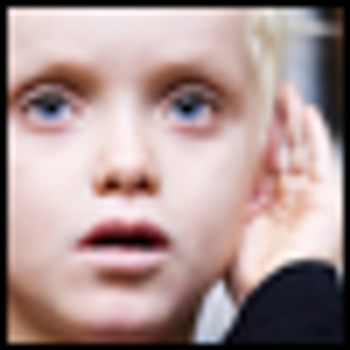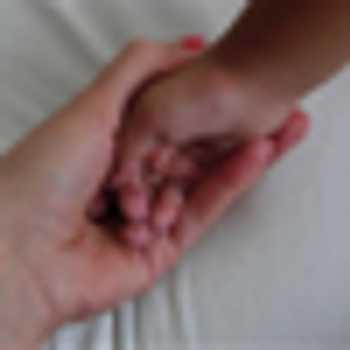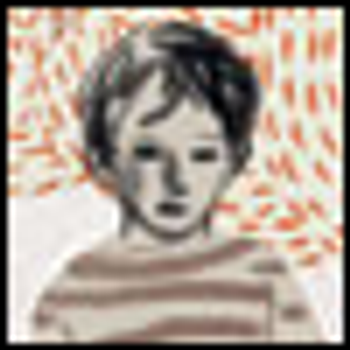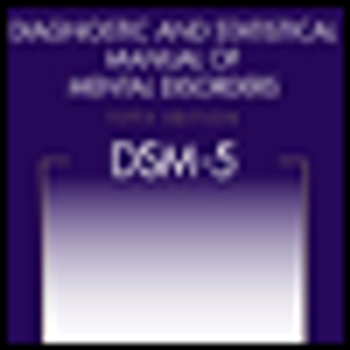
An expert discusses the clinical, biological, and genetic components of de novo mutations and autism spectrum disorders.

An expert discusses the clinical, biological, and genetic components of de novo mutations and autism spectrum disorders.

This psychiatrist takes notice when he hears public remarks by celebrities on their alleged psychiatric illnesses. A perfect example is when Jerry Seinfeld claimed he was “a bit autistic” to Brian Williams on NBC Nightly News.

Innovative approaches that advance our understanding of the mechanisms that confer risk for psychiatric illness in youths is the focus.

The aggregation of psychiatric diagnoses in individual psychiatric patients, ie, the presence of multiple disorders in one individual, is a curious and sometimes disturbing observation in psychiatry.

In a new study, researchers found an absolute risk of 4.42% of valproate use during pregnancy with autism spectrum disorder and an absolute risk of 2.50% for childhood autism.

Traumatic brain injury, criminal responsibility, traumatic stress, and autism spectrum/neurodevelopmental disorders slideshow

A recently published NIH study of 112 children suggested that some children might possibly outgrow autism.

This article aims to provide the general psychiatric community with an update on the major findings on the biology of ASDs as well as the advances in diagnostic and interventional strategies.

Autism: The DSM-5 Neurodevelopmental Disorders Work Group questions the validity of a study by James McPartland and colleagues.

Three twin studies published between 1977 and 1995, which provided the main body of knowledge on heritability of autism, showed a concordance rate of 72% for a total of 36 monozygotic pairs and a concordance rate of 0% for 30 dizygotic pairs.

In many climates, a cold February is relieved a bit by the Super Bowl and then by Valentine’s Day-a symbol of hope for falling in love, sometimes suddenly and unexpectedly.

So far, opposition to DSM-5 has been expressed by at least 11 organizations.

In my view, Dr Angell’s assertions reflect both a serious misunderstanding of psychiatric diagnosis, and-equally important-a failure to address the core philosophical issues involved in her use of the terms “subjective,” “objective,” “behaviors,” and “signs.”

A large and comprehensive study recently performed in Korea has produced a surprising and disturbing result. The rate of autism is reported to be an astounding 1 in 38...

This article highlights the biological and clinical links between the two disorders, reviewing shared genetics, brain changes, and similarities and differences in clinical presentations.

Expansion of age-appropriate developmental psycho-therapeutic services must become a top public health priority to make these treatments more widely available to young children and to capture the potential greater benefit of the earliest possible intervention for mental disorders.

Recent attention has focused on identification of early signs that may identify children at risk for development of autism spectrum disorders (ASD).

The ideal field test would study how the diagnostic manual will eventually perform under conditions most closely approximating its future everyday use. The goal is to avoid unpleasant surprises in translation from what has been written on paper to what is practiced in real life. No field test can ever approach the ideal.

Eventually, DSM-5 will be a rushed patch-work. The only hope for a usable DSM-5 is for the Trustees to exert their authority to correct an errant process. But they will act only if there is mounting outside pressure and widespread public concern.

Autism is demanding increased attention by professional and lay audiences; prevalence seems to be increasing. There are differing opinions about whether the increase is due to greater recognition and reporting, diagnostic expansion and substitution, or increasing acceptability.

This is both an exciting and challenging time to be a child and adolescent psychiatrist. New findings are changing our knowledge of childhood psychopathology. This Special Report discusses current developments in diagnosis, treatments, and problems for children and adolescents.

Sometimes you spot a serious problem and figure out a very well-intended solution, only to discover eventually that your solution created as much trouble as the original problem. The workers on DSM5 have spotted an enormously worrying problem-the wild overdiagnosis of childhood bipolar disorder (BD) which has led to a massive increase in the use of antipsychotic and mood stabilizing medications in children and teenagers.

DSM5 suggests 2 changes that would make it much easier for an adult to get a first time diagnosis of Attention Deficit Disorder (ADD): 1) reducing the number of symptoms required for adults from 6 to 3; and 2) relaxing the requirement that the onset of symptoms must have occurred before age 7 (by allowing the onset to be up to age 12).

Mark Twain observed that "the past may not repeat itself, but it sure does rhyme." An unfortunate rhyme in psychiatric history is the recurrence of fad diagnoses. Childhood Bipolar Disorder is the most dangerous current bubble, with a remarkable forty-fold inflation in just one decade.

New Insights Into Diagnosis, Comorbidities, and Treatment Approaches